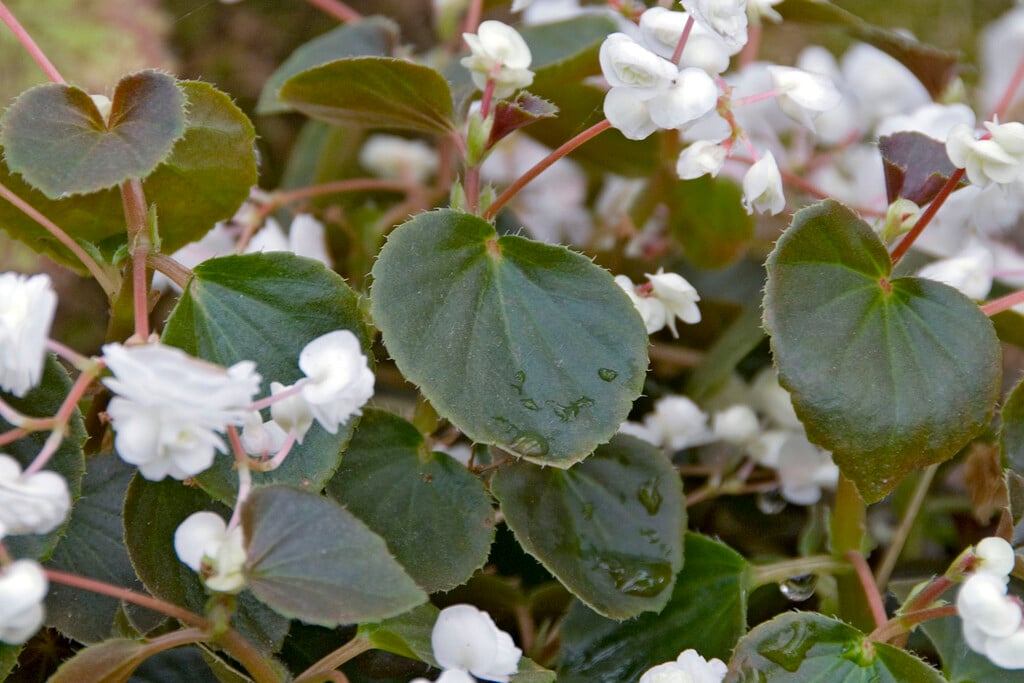Begonia 'Doublet White' (Doublet Series) (S/d)
begonia 'Doublet White'
A bushy and compact evergreen perennial, often grown as an annual, with soft, succulent stems to 35cm tall and rounded, glossy, bronze-green leaves. From summer to autumn it produces an abundance of double white flowers
Size
Ultimate height
0.1–0.5 metresTime to ultimate height
1–2 yearsUltimate spread
0.1–0.5 metresGrowing conditions
Moisture
Moist but well–drainedpH
Acid, NeutralColour & scent
| Stem | Flower | Foliage | Fruit | |
| Spring | Green Bronze | |||
|---|---|---|---|---|
| Summer | White | Green Bronze | ||
| Autumn | White | Green Bronze | ||
| Winter |
Position
- Partial shade
Aspect
East–facing or North–facing or South–facing or West–facing
Exposure
Sheltered Hardiness
H1BBotanical details
- Family
- Begoniaceae
- Native to GB / Ireland
- No
- Foliage
- Evergreen
- Habit
- Bushy
- Potentially harmful
- Ornamental bulbs - not to be eaten. Wear gloves and other protective equipment when handling. Pets: Ornamental bulbs - not to be eaten - see the HTA guide to potentially harmful plants for further information and useful contact numbers
- Genus
Begonia can be annuals, evergreen or deciduous perennials or shrubs, with fibrous, tuberous or rhizomatous roots and usually asymmetrical leaves, often strikingly patterned, and small or large flowers, both male and female in the same cluster
- Name status
Accepted
- Horticultural Group
- Semperflorens-Cultorum begonias are fibrous-rooted evergreen perennials, much used for summer bedding, with rounded, often attractively coloured leaves, and sprays of single or double flowers 1-2.5cm across in summer or throughout the year
How to grow
Cultivation
Plant out after the last frosts in fertile, humus-rich, moist but well-drained soil in partial shade. See begonias: outdoors for further information
Propagation
Propagate by seed or basal cuttings
Suggested planting locations and garden types
- City and courtyard gardens
- Cottage and informal garden
- hanging basket
- Patio and container plants
- Sub-tropical
- Bedding
- Conservatory and greenhouse
- Flower borders and beds
- Garden edging
Pruning
No pruning required
Pests
Generally pest-free
Diseases
May be susceptible to grey moulds (botrytis), powdery mildew and stem rot
Love gardening
Sign up to receive regular gardening tips, inspiration, offers and more
View our Privacy Policy
Get involved
The Royal Horticultural Society is the UK’s leading gardening charity. We aim to enrich everyone’s life through plants, and make the UK a greener and more beautiful place.
